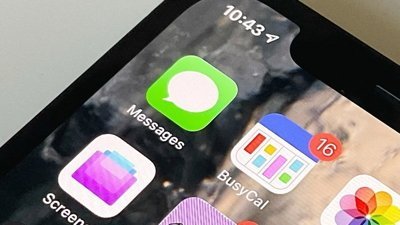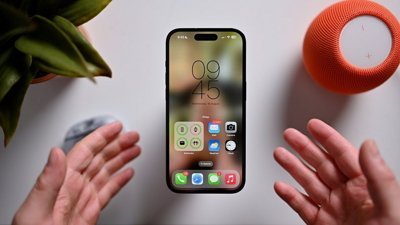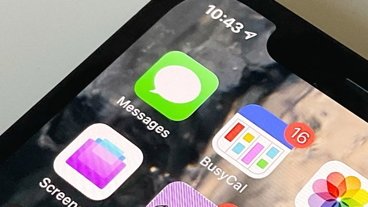Gizmodo may attempt to sue police over iPhone prototype raid
A report filed by Greg Sandoval of CNET cited Gizmodo's media lawyer Thomas Burke as saying that the search was "not the appropriate method in this situation."
Burke said the search could have been avoided if police had simply contacted the blog and asked for its cooperation in investigating the issues related to theft and the sale of stolen merchandise.
"If a request had been made," Burke said, "we would have freely and quickly given assurances under penalty of perjury that no information is destroyed. That's what would happen if a subpoena were followed, which is what happens ordinarily in these circumstances. That's why it's such a contravention of process. If that request had been made, none of this would have been an issue."
Wired reported earlier that Apple contacted the original individual holding the prototype and was rebuffed in its efforts to obtain the phone. Weeks after obtaining it, the individual then sold the device to Gizmodo, along with information about the identity of the engineer who had lost it. Gizmodo continued to hold the device while it prepared reports on it, the engineer and Apple's attempts to retrieve it, details that weaken the attorney's claim that Gizmodo was working to cooperate in the return of the stolen device.
In an earlier case where Apple attempted to subpoena bloggers to determine the source for leaked information they had printed, the company was blocked from obtaining a subpoena due to the shield laws for journalists. In that case, no criminal conduct was alleged.
Suing for sources vs. investigating criminal conduct
The Gizmodo case is different, because Apple is not pursuing a civil case against bloggers to obtain their sources. This investigation is a criminal case that revolves around the theft of a prototype and its sale to Gizmodo parent Gawker Media, a transaction that was publicly advertised by the blogger group.
While charges have not yet been filed, the police have said they have interviewed the person who obtained the prototype after it was lost and who kept it for weeks without returning it. There is also no real controversy around the fact that the phone was delivered to Gizmodo in exchange for a reported $5,000.
The fact that those circumstances are defined as a significant crime in California means that if Gizmodo is under investigation for buying stolen property, the shield law would not apply to offer any protection and Gizmodo would have no basis for suing the police in a civil suit.
Police considering shield laws in advance of investigation
On the other hand, if the police were only investigating the original individual who took the prototype and subsequently shopped it around to various media sources, including Engadged and Wired, before selling it to Gizmodo, then shield laws might apply because the police can't raid news gathering operations simply to determine the sources of their reports.
In that case, Gizmodo may also have a legitimate civil case against the police conducting the raid, although the law only allows for $1000 in statutory damages in addition to legal fees.
However, the police are clearly aware of the shield laws and did not obtain a warrant or conduct the raid without any knowledge of the rules protecting journalists.
Sandoval reported that San Mateo County prosecutors told CNET "they considered early on whether newsroom search laws applied— and decided to proceed only after carefully reviewing the rules." Chief deputy district attorney Stephen Wagstaffe noted that the prosecutor "considered this issue right off the bat" and "had some good reasons why he and the judge felt the warrant was properly issued."
The police are currently holding the seized property and waiting to conduct any investigation until the issue of whether shied laws are revenant in this case are resolved.
 Prince McLean
Prince McLean













 Andrew Orr
Andrew Orr
 Marko Zivkovic
Marko Zivkovic

 Wesley Hilliard
Wesley Hilliard
 Malcolm Owen
Malcolm Owen
 Amber Neely
Amber Neely








181 Comments
Gizmodo paid $5000 for property that did not belong to the seller, nor to Gizmodo. Upon receiving said property, they disassembled it into individual components and photographed all of the components.
It sounds, to me, like Gizmodo and/or its agent broke the law.
Sounds like confirmation that Gizmodo't legal team must have gone to the same law school as Psystar's legal team.
Probably the Disney School of Creative Arguments
I am declaring my house as news room... enough said
"journalists" ???
Now there's a stretch!
...issue of whether shied laws are revenant in this case are resolved.
[ View this article at AppleInsider.com ]
Hell, makes me wonder...